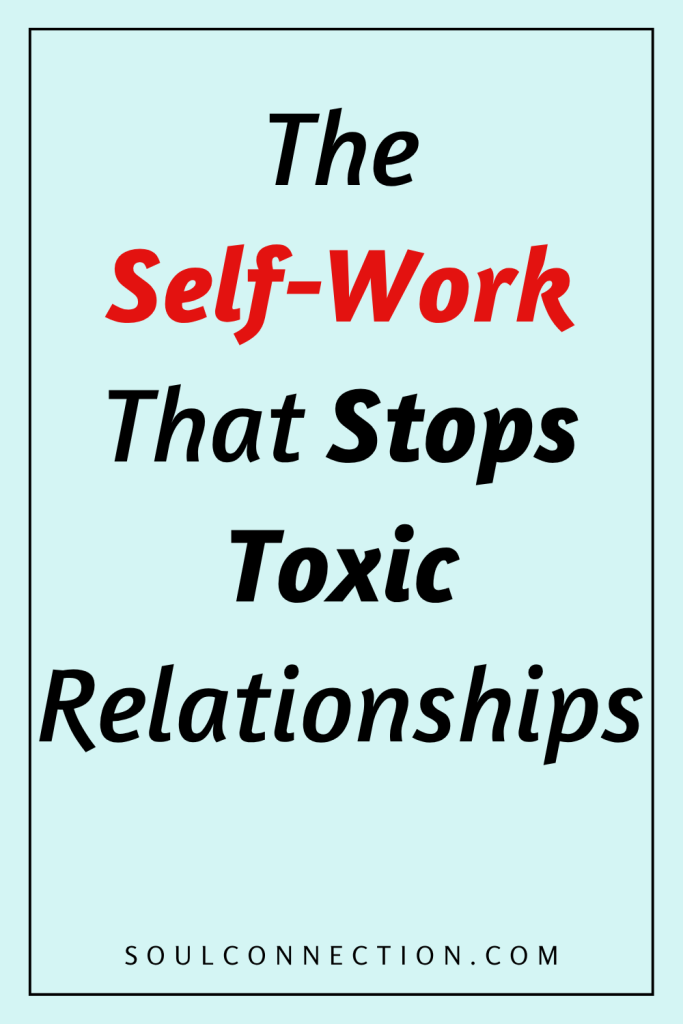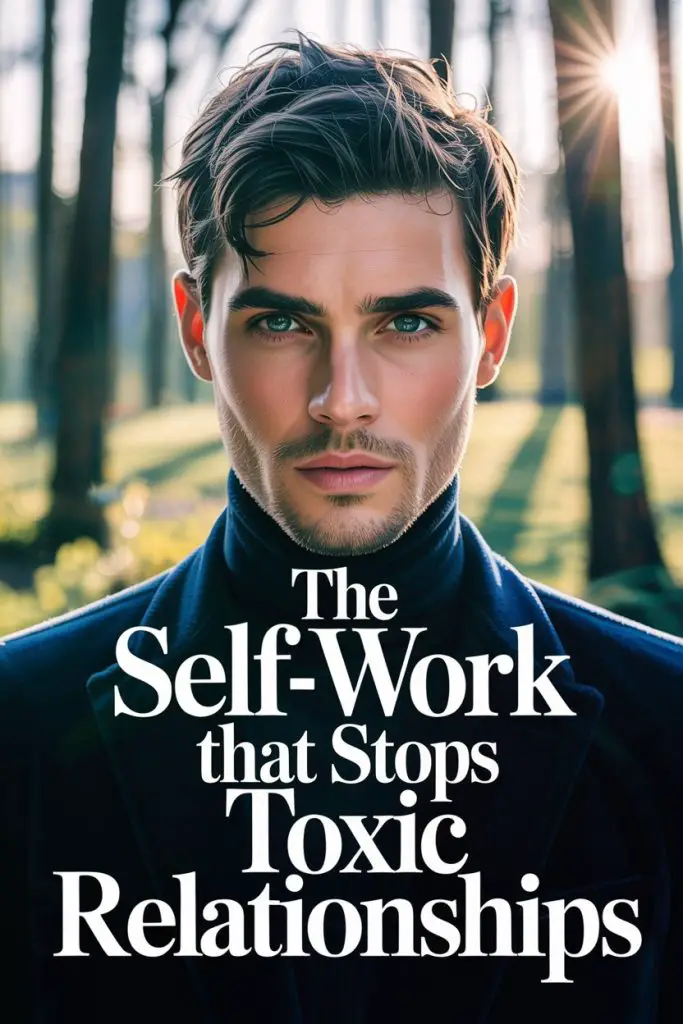Sometimes, it’s not about finding the right person. It’s about being the right person—at least, the kind of person who won’t keep ending up in relationships where their boundaries are treated like polite suggestions.
That’s where self-work comes in. Not the glamorous, Instagram-ready kind with sunsets and vision boards.
The gritty, sometimes slightly embarrassing, but seriously rewarding kind that lets you break the cycle of drama, heartache, and those 2 a.m. arguments about who left the milk out.
Ready for a bit of wisdom, humor, and practical magic? Pull up a chair.
Why Self-Work Matters More Than “Fixing” Your Partner
Everyone’s got a friend who can recite their ex’s flaws like a Shakespearean tragedy. “He never listens,” or “She’s so manipulative,” or “His idea of romance is sharing fries at Macca’s.”
Here’s the kicker: while it’s tempting to point out your partner’s every shortcoming with forensic precision, the real power lies in working out what you bring to the table. Not in a blame-yourself way—more like an “I’m taking charge of my own story” way.
Self-work means noticing your patterns, understanding your triggers, and getting honest about how you show up.
That’s not just self-help mumbo jumbo; it’s the kind of change that can stop toxic relationships before they start—or, at the very least, make you less likely to stick around when someone’s treating you like a doormat.
Spotting Your Patterns
Ever wondered how you keep finding yourself in the same situation, just with different haircuts?
Patterns are sneaky. One minute you’re pledging “never again,” the next you’re dating the emotional twin of your last disaster. Time to channel your inner detective (minus the trench coat) and get curious about your history.
Look at your last few relationships. Do you consistently take on the role of the fixer? Are you drawn to people who make you feel small, or like you’re constantly auditioning for love?
If your romantic history reads like a case study in déjà vu, your patterns are in the driver’s seat.
Recognizing these themes isn’t about wallowing in regret. It’s about shining a light on the stories you’re unconsciously telling yourself: “I have to work for love,” or “I don’t deserve better.” Once you spot these, you can challenge them.
Boundaries: Your Relationship’s Security System
Nothing keeps out toxic nonsense quite like a decent set of boundaries.
Boundaries aren’t about being rigid or cold. They’re about protecting your emotional energy and knowing where you end and someone else begins.
If you grew up believing that love means self-sacrifice, or your needs should always come last, boundaries might feel a bit strange at first—like wearing shoes on the wrong feet.
The magic happens when you get clear on what’s okay (and what absolutely isn’t). This can be as simple as saying, “I’m not comfortable talking about that,” or, “I need time for myself tonight.”
The trick is sticking to your boundaries, even when it feels awkward. Anyone who tries to bulldoze them is showing you exactly why you need them.
Healing Old Wounds That Attract Toxicity
Unhealed hurts are like emotional magnets for toxic dynamics.
Maybe you had a parent who was impossible to please, or an ex who played mind games like it was an Olympic sport. These wounds set up shop in your subconscious, quietly nudging you toward relationships that feel familiar (and not in a good way).
Healing starts with acknowledging what happened—and how it affected you. This might mean having a good cry, journaling, talking to a therapist, or just admitting, “Yeah, that really messed me up.”
It’s not about blaming the past, but about freeing yourself from its grip. The healthier you get, the less appealing chaos and drama become.
Self-Esteem: The Antidote to Manipulation
Confidence isn’t just about strutting around like you own the place. It’s knowing, deep down, that you deserve respect, kindness, and consistency.
Low self-esteem is catnip for toxic partners. They sense it. They exploit it. Before you know it, you’re apologizing for things that aren’t your fault or twisting yourself into a pretzel to keep someone happy.
Building self-esteem isn’t an overnight job. Start small: Treat yourself the way you’d treat your best mate. Celebrate your wins, however tiny. Speak up about your needs, even if your voice shakes.
Each time you do, your internal sense of “I matter” gets a little stronger.
And when you believe you deserve better, you’ll start picking better.
Communication Skills That Don’t Backfire
Ever tried to express a boundary, only to end up in an argument about why you’re “too sensitive” or “always overreacting”? Welcome to the world of gaslighting.
One of the best self-work investments is learning how to communicate clearly and assertively.
This doesn’t mean lobbing accusations across the table, or bottling everything up until you explode. It’s about owning your feelings (“I feel hurt when…”) and stating your needs calmly.
Practice makes perfect, even if you feel awkward at first. Assertive communication tends to weed out those who thrive on drama—they hate when their tricks stop working.
Learning to Spot Red Flags Early
Self-work includes sharpening your instincts. Red flags aren’t meant to be cute accessories; they’re warnings.
If you tend to excuse bad behavior (“He’s just stressed,” “She’s had a rough past”), it’s time to trust your gut instead of explaining it away. Healthy self-work means acting on those early warning signs, not waiting for the situation to go nuclear.
Pay attention to how you feel around someone. Drained? Constantly anxious? Like you’re walking on eggshells? Healthy relationships don’t feel like survival missions.
Ditching the Rescue Fantasy
Some of us are drawn to fixer-upper partners like moths to a flame. Maybe you want to “save” someone from their issues, or you’re convinced your love is the missing puzzle piece.
Here’s the truth: you can’t out-love someone’s unresolved trauma, lack of self-awareness, or refusal to grow. Your job isn’t to be anyone’s personal therapist or life coach.
Self-work means letting go of the fantasy that you can change someone who’s not willing to do their own work. Focus that energy on your own growth instead. It’s less exhausting—and much more rewarding.
Making Peace With Solitude
Nothing spooks people into bad relationships faster than the fear of being alone. It’s that nagging voice whispering, “Anyone is better than no one.”
Spoiler alert: not true.
Learning to enjoy your own company is a massive game-changer. When you’re comfortable on your own, loneliness loses its power and you’re far less likely to settle for crumbs.
Self-work here might include reconnecting with hobbies, nurturing friendships, or just taking yourself for coffee and not apologizing for it.
People who don’t fear solitude are much, much harder to manipulate.
Trusting Yourself Again
Toxic relationships have a way of making you doubt your own judgment. Maybe you ignored your gut before and paid the price. Maybe you’re scared of screwing up again.
Self-work means rebuilding trust with yourself. Acknowledge the times you missed the signs, but don’t live there. Instead, practice making small, safe decisions and noticing when things work out.
Over time, your inner compass gets stronger.
You’re the expert on your own life—even if you need a little practice remembering that.
Surrounding Yourself With Healthy People
The company you keep shapes your standards. If you’re knee-deep in drama-prone mates or family members who think boundaries are a personal insult, it’s time for a refresh.
Seek out people who treat you with respect, who listen, who don’t make you feel like love is a battleground. These relationships can serve as blueprints for what’s possible.
And if you don’t have a crowd of supportive pals yet? Quality beats quantity every day of the week.
The Self-Work Advantage
No one said healing your relationship patterns would be a walk in the park. It’s messy, sometimes tedious, and almost always worth it.
The more you invest in understanding your triggers, building better boundaries, and treating yourself with care, the stronger your “toxic-proof” shield becomes.
You start spotting red flags from a mile away. You stop apologizing for your needs. And, best of all, you realize you’re far too fabulous to settle for relationships that leave you feeling like yesterday’s leftovers.
Turns out, the real love story starts with you.


